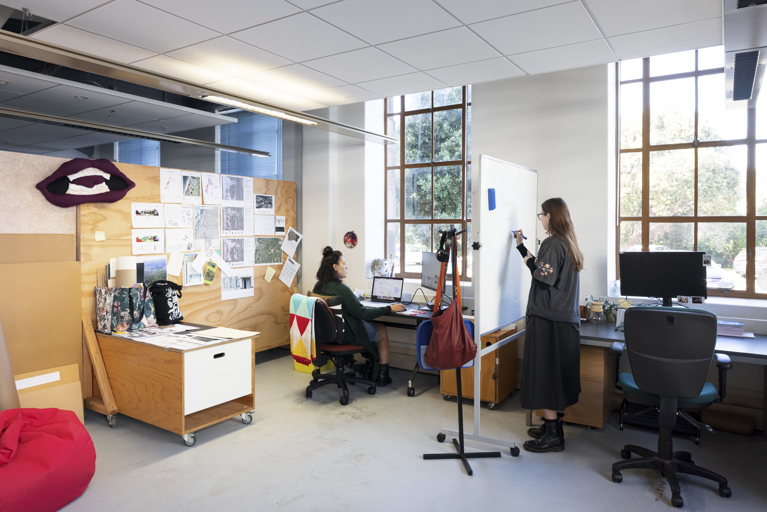


Your research can be strongly disciplinary-focussed or span fields and knowledge systems. High quality, critical research is grounded within Aotearoa New Zealand, while connecting and contributing to global conversations.
Accepted Master's applications will be based on meeting entry criteria, plus review of a portfolio of relevant creative work, a research statement (for 180 credit Master’s) or research proposal (for accelerated entry into the 120 credit Thesis component), and an interview. Fast track progression to the 120 credit Thesis component of the degree is possible for applicants with a completed an Honours qualification (or equivalent) with a B+ GPA.
All Master's qualifications offer a focus on Indigenous research practices and methods.

[Where Memories Sleep], Jason O'Hara, MDes 2019.
Produce advanced, innovative and responsive design work that is thoroughly grounded in design research methodologies, in a qualification closely developed in partnership with industry and focussed on society and the environment. Design research specialisms include, industrial, spatial, textiles, photography, fashion, concept, service and UX, interaction, visual communication, integrated, and inter-disciplinary practices. We offer an extensive array of analogue and digital technologies and fabrication facilities, staffed by highly experienced technicians, to support your innovative making.

[Long-Breath-Out], Rebecca Mooney, MFA, 2019.
Challenge and extend your creative practice in this research-driven, trans-disciplinary, critically engaged fine arts programme. Research specialisms include; performance, photography, moving image, sound, installation, participatory and socially engaged practices, drawing, painting, sculpture, art in public space, curation, art criticism and more. Interdisciplinary approaches are welcomed, and MFA students have access to laboratories, studios, workshops including darkrooms, the digital print facility, 3-D Workshop, Fab Lab, video editing suites and more.

Ahumairangi Recording Studio
Pursue creative research pathways, supported through connections and partnerships with industry and the sector. Spanning song writing and composition for games and screen-based media, music production, publishing, promotion and management, music technology, sound design and engineering, experimental practices and more. The programme is strongly industry aligned and utilises world class facilities and studios.

Massey's state-of-the-art virtual production volume studio
Develop high-quality, genre-pushing creative practice, within the broad and dynamic fields of screen arts; including options for individual and group projects across film and television, game design and development, animation and visual effects, immersive and interactive production, utilising state-of-the-art facilities including a large-scale virtual production volume, a range of industry standard cameras and production equipment, immersive media labs, a cinema with Dolby atmos, post-production facilities and more.

[Pelagic States—Towards a Nomadic and Oceanic Practice], Sam Trubridge, PhD, 2018.
Produce a sustained piece of advanced research work in a creative arts discipline. A PhD makes an original contribution to the field through creative and written outputs.

Ahumairangi Recording Studio
Refine your specialist music skills with a one-year research-driven independent project. Explore your place in the ever-changing music industry, whether you’re a performer or work in the music industry.

[Sally's Adventure], Sally Zhang, PGDipDes, 2019.
If you haven't completed an Honours degree, or don't want to commit to a full Master's programme, you can enrol in a postgraduate diploma.
Postgraduate Diploma in Design →
Speak with one of our Postgraduate team members to find out more about what's available at Toi Rauwhārangi College of Creative Arts.